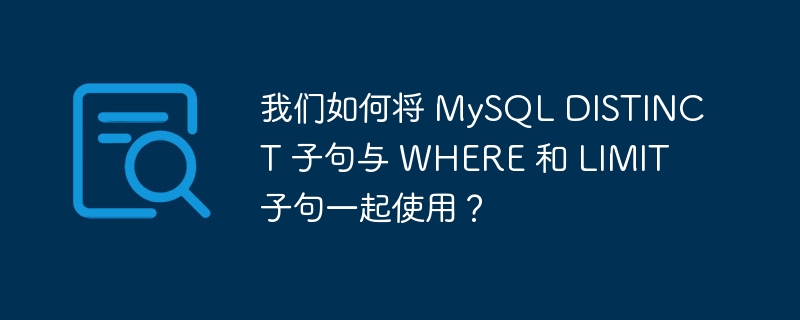

By using the WHERE clause with the DISTINCT clause in a MySQL query, we set a condition based on which MySQL returns the unique rows of the result set. By using the LIMIT clause and the DISTINCT clause in a MySQL query, we actually provide the server with a range on the maximum number of unique rows to return in the result set.
We can use WHERE and LIMIT clauses with DISTINCT on the table named "testing" as shown below-
mysql> Select * from testing; +------+---------+---------+ | id | fname | Lname | +------+---------+---------+ | 200 | Raman | Kumar | | 201 | Sahil | Bhalla | | 202 | Gaurav | NULL | | 203 | Aarav | NULL | | 204 | Harshit | Khurana | | 205 | Rahul | NULL | | 206 | Piyush | Kohli | | 207 | Lovkesh | NULL | | 208 | Gaurav | Kumar | | 209 | Raman | Kumar | +------+---------+---------+ 10 rows in set (0.00 sec) mysql> Select DISTINCT Lname from testing where Lname IS NOT NULL limit 3; +---------+ | Lname | +---------+ | Kumar | | Bhalla | | Khurana | +---------+ 3 rows in set (0.00 sec)
The above is the detailed content of How can we use MySQL DISTINCT clause with WHERE and LIMIT clause?. For more information, please follow other related articles on the PHP Chinese website!




